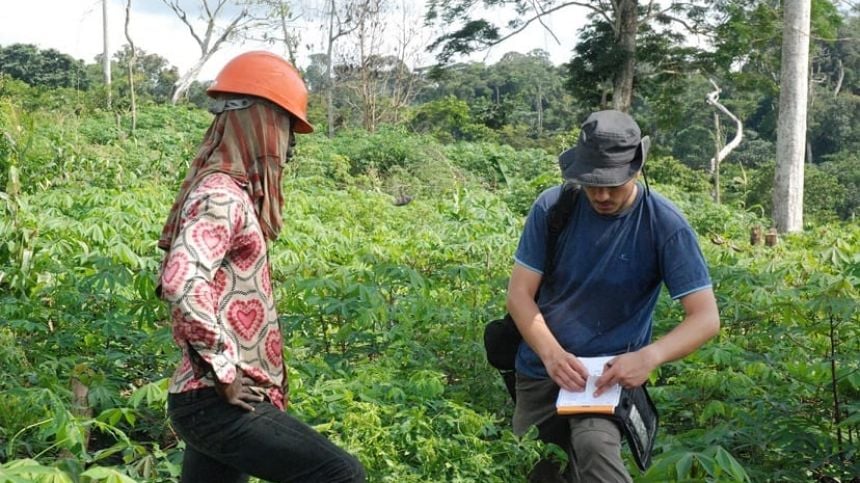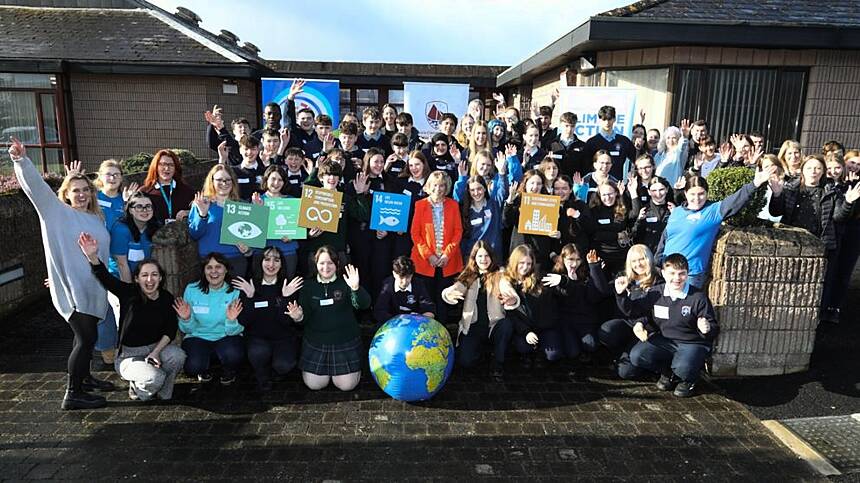Galway Bay fm newsroom - New research from NUI Galway has revealed how social factors can spread pandemic crop viruses in Africa.
Scientists from the Ryan Institute have analysed what causes the spread of viruses responsible for cassava mosaic disease - one of the most significant crop viruses on the continent.
New research from NUIG has revealed how contrasting marriage practices across traditional farming communities in Gabon, Central Africa, directly related to cultural differences in the way villages exchange cassava varieties through matrimonial networks.
Cassava mosaic disease is one of the most important crop diseases in Africa; causing losses of 20% to 95% of cassava harvests and economic losses estimated at $1.2 to $1.3 billion each year.
The study found that farmers readily import new cassava varieties through matrimonial networks and as a result varietal diversity increases in the community, however, they can also make these systems more vulnerable if they facilitate the dissemination of seedborne plant pathogens.
NUIG Professor Charles Spillane says understanding different societal systems is critical for understanding the transmission and evolution of pandemic viruses; whether they are viruses infecting humans, livestock or crops.







